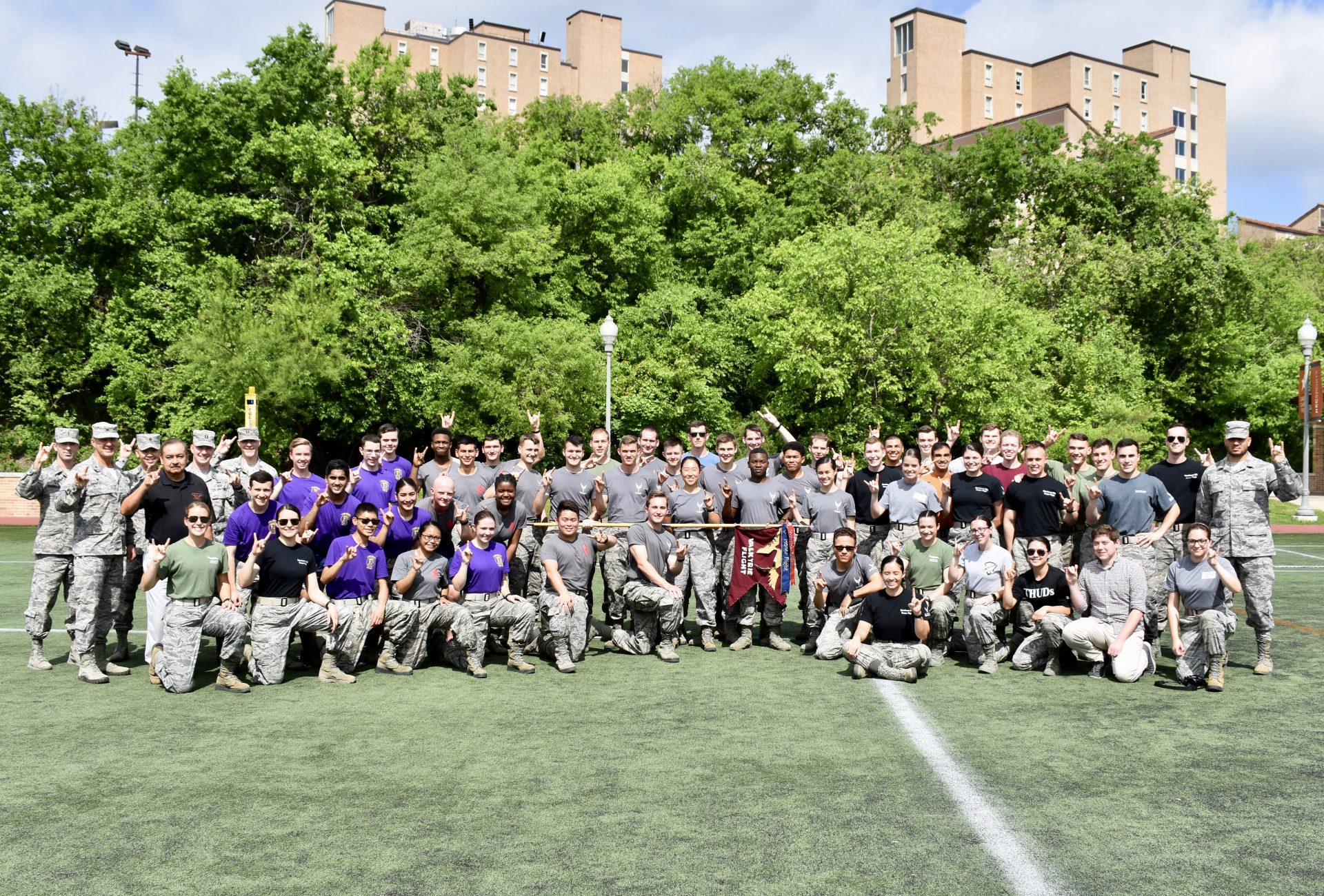Out of 145 Air Force Reserve Officer Training Corps (ROTC) detachments across the country, Detachment 825 of the University of Texas at Austin was named the Team of the Year.
In making their selection, the national headquarters for Air Force ROTC considers each detachment’s accomplishments. “They make their determination on overall mission impact, the uniqueness of contributions and mission effectiveness,” says Capt. Thomas Hart, instructor of Air Force science at UT Austin.
“Against another 144 detachments, to come out on top is a great way to bring honor to all of the team’s hard work,” says. Col. Paul Tombarge, chair of the Department of Air Force Science at UT Austin. “We’d like to bring in more cadets in the future, so hopefully this will inspire other students to join, try it out, and see if they like it.”
Tombarge describes his own experience as doing just that. He knew little about ROTC or the Air Force Academy when he began college 33 years ago and was well into his freshman year before he decided to join Air Force ROTC at the University of Minnesota. The rest, he says, is history.
Today, he commands Detachment 825 at UT Austin, which is made up of a wide variety of people, including student cadets, who will become second lieutenants in the Air Force upon graduation, and cadre members, or active duty officers who instruct and lead the students.
Offered at more than 1,100 colleges and universities across the country, Air Force ROTC is the largest of the three commissioning sources (the others being Officer Training School and the U.S. Air Force Academy) and prepares students to become officers in the U.S. Air Force while they earn their college degrees at a civilian university.
“Being able to work with the caliber of people that we have, the level of responsibility that we’re given, and seeing the mission completed, are all great aspects of being in Air Force ROTC,” Tombarge says. “An Air Force career can be challenging. There can be long hours and sometimes you can be away from home, but the leadership opportunities, travel, and unique experiences are rewarding in the end.”
Tombarge believes that the UT Austin detachment mirrors UT Austin’s slogan: “What starts here changes the world.”
“We’ve got a lot of great people here, individually doing great things, but when you put us all together that composite thing stands out and rises above everybody else,” Tombarge explains. “The caliber of our cadets and the cadre is outstanding.”
One such cadet is Jillian Wilde, a senior in international relations and global studies. She holds the title of Cadet Wing Commander and the rank of cadet colonel, overseeing all cadet activities, such as military training and physical fitness as well as social functions like the Air Force ball and administering the detachment’s Facebook page.
To Wilde, the most rewarding aspect about being in ROTC is developing as a leader inside of a training environment before entering the Air Force. “You really get to experience and experiment with your leadership style before you become an active duty officer,” she says.
Wilde explains that ROTC encourages students to try new things with a safety net, where students are empowered to take risks. This empowerment breeds excellence, Shader says, which stems from the mentorship that the cadre provides.
“Our cadre members really take an active part in our learning,” she says. “They take their mentorship responsibilities very seriously, and whenever cadets need help or mentoring or leadership guidance, the cadre members are always there for us.”
In looking to the years ahead, Tombarge hopes the cadre will continue to support and inspire cadets to be their best and work towards being named the Team of the Year next year and every year after.
“It’s always hard to win these types of rewards two years in a row, but we’ll see if we can do it,” he says. “We’ve got our bar set high.”
